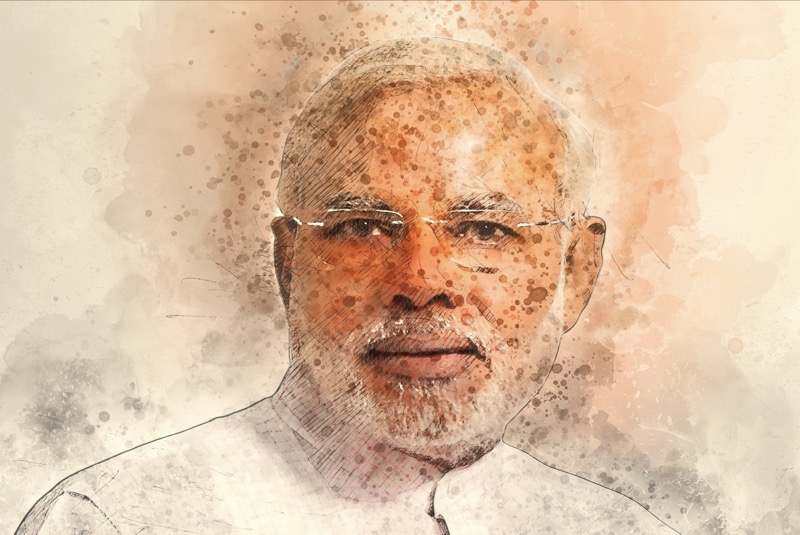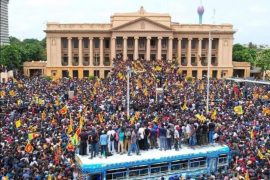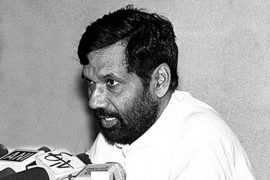The Karnataka elections are a major blow to the BJP. Over a dozen Ministers, who held prominent portfolios such as Major Irrigation, Industries, Agriculture, Health and Transport, have lost their seats in the Karnataka Assembly elections. They were brought down by the anti-BJP wave that swept through the State in this election.
The poll results will infuse renewed enthusiasm in the opposition, which is banking on forming a united front to challenge Modi in next year’s general election. This result will also help boost the morale of the Congress party, which is striving to regain its political prominence nationwide.
The BJP’s defeat in Karnataka means Modi’s party, which relied on his image and charisma, has lost the only southern State it has ever controlled. This is despite the fact that Modi campaigned aggressively in the State by holding huge roadshows over the past several weeks.
The people of Karnataka have decisively rejected the politics of hate. Their reliance on Narendra Modi’s image, unwillingness to listen to their party cadres, lack of focus on local issues, and desperate attempts to communalise issues have routed the party’s place in Karnataka. The hubris and arrogance of the BJP’s central leadership have led to their humiliating defeat.
The Karnataka election results indicate that the BJP’s method of hate-mongering on communal lines to win electoral battles is backfiring. This is the case not only in Karnataka but also in other states.
Let’s examine some facts. In July 2017, the BJP had its hold (either the BJP alone or through an ally) on many states in India – Gujarat, Madhya Pradesh, Rajasthan, Uttar Pradesh, Uttarakhand, Himachal Pradesh, Jharkhand, Chattisgarh, Karnataka, Maharashtra, Haryana, Punjab, Jammu and Kashmir — to mention a few. However, post-2018, that trend has reversed.
People have voted out the BJP and voted for the Congress party or a local party in several states. For instance, in Chattisgarh, people have voted out the BJP and voted the Congress in. So is the case with Rajasthan, Punjab, Goa and Maharashtra. In Maharashtra, the Shiv Sena, a party with a Hindutva agenda, formed a government with the support of the Congress party. But the BJP broke the Shiv Sena leadership and snatched Maharashtra away from Shiv Sena in an openly undemocratic horse-trading power grab. So is the case in Goa.
The people of Jharkhand have voted out the BJP, and a JMM-Congress alliance formed the Government. Similarly, the people of all the South Indian states — Telangana, Tamil Nadu, Andhra Pradesh, Karnataka and Kerala have rejected the BJP. In Telangana, the Telangana Rashtra Samiti (now rechristened Bharat Rashtra Samiti) is holding the reins of power. Similarly, in Andhra Pradesh, Jagan Mohan Reddy and his YSRCP hold the reins of power. The Congress party holds the reins of power in Kerala.
But why are Modi and his BJP consistently losing ground?
Modi came to power with the promise of development and good governance. His promise of job creation, controlling black money and making India a manufacturing superpower has proved to be nothing but hot air.
Under Modi’s leadership, the Indian economy has significantly underperformed. As a result of demonetisation and the clumsy GST regime, small and medium enterprises suffered immensely. People in the unorganised sector lost jobs. Currently, the unemployment rate in India is close to seven per cent. Consequently, people in the lower sections of society have been pushed into desperate poverty.
On the other hand, Mr Modi’s ‘friends’, a select few industrialists who have supported Modi’s candidature, have seen their wealth soar. While those critical of the Modi government are being harassed, Mr Modi’s friends, particularly the Adani group, have received favourable treatment. For instance, despite the recent accusations of fraud and stock manipulation, the Government has not taken action against the Adani group.
Mr Modi harped on delivering ‘minimum government and maximum governance.’ But in reality, the country has witnessed extreme centralisation of power under Modi. India’s institutions, which were expected to be autonomous, notably the Central Bureau of Investigation (CBI) and the Enforcement Directorate, have become tools to harass the opposition. The Modi government has also bulldozed several crucial laws without discussion or deliberation in India’s Parliament.
The manner in which the BJP broke the rules of democratic engagement to keep itself in power has frustrated the people of India. Modi’s authoritarian streak, the arrogance of power, obsession with photo ops and propaganda have not gone unnoticed by the country’s electorate. The electorate has taken notice of the Modi government’s overbearing, undemocratic activities.
The people of Karnataka have spoken decisively. The State’s election results are the first step in ridding India of hate-filled communal politics.
-30-
Copyright©Madras Courier, All Rights Reserved. You may share using our article tools. Please don't cut articles from madrascourier.com and redistribute by email, post to the web, mobile phone or social media.Please send in your feed back and comments to [email protected]











